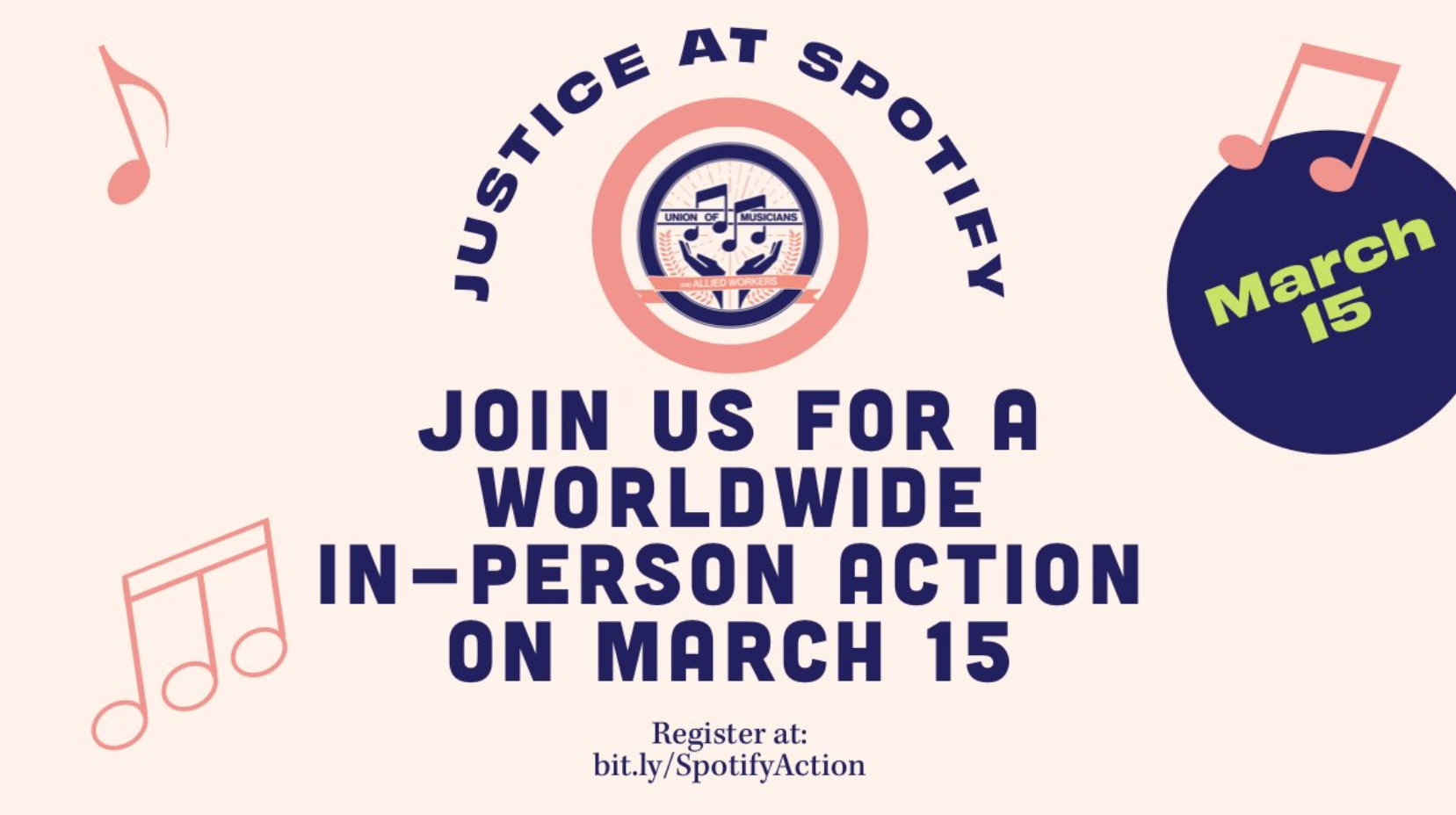

The Union of Musicians and Allied workers have organized protests at Spotify offices across the globe, demanding increased transparency in the company’s business practices, an end to lawsuits filed against artists and a user-centric payment model that pays a cent per stream. Demonstrations were organized across 10 U.S. cities, with further demonstrations held in Australia, Europe, Asia, and Central and South America.
“Musicians united will never be divided!”
Los Angeles demands #JusticeAtSpotify pic.twitter.com/MSEY2zg7La— Union of Musicians and Allied Workers (@UMAW_) March 15, 2021
Birmingham, MI demands #JusticeAtSpotify pic.twitter.com/KvJUGBAJ0d
— Union of Musicians and Allied Workers (@UMAW_) March 15, 2021
Artists have been condemning Spotify’s royalty rates for years, with many musicians condemning Spotify CEO Daniel Ek’s claim last year that low royalty rates were a “narrative fallacy.” The Union of Musicians and Allied Workers launched a “Justice At Spotify” imitative last year, which followed these controversial statements.
San Francisco demands #JusticeAtSpotify pic.twitter.com/CP0ZI7BG97
— Union of Musicians and Allied Workers (@UMAW_) March 16, 2021
Boston demands #JusticeAtSpotify (in 10 degree F freezing cold) pic.twitter.com/oWKy0eAeJt
— Union of Musicians and Allied Workers (@UMAW_) March 16, 2021
“The company has tripled in value during the pandemic, while failing to increase its payment rates to artists by even a fraction of a penny,” UMAW organizer Mary Regalado, who is a member of Downtown Boys and Gauche, aid in a statement to Pitchfork. “Musicians all over the world are unemployed right now while the tech giants dominating the industry take in billions. Music work is labor, and we are asking to be paid fairly for that labor.”
London demands #JusticeAtSpotify pic.twitter.com/KBaVyjv9MU
— Union of Musicians and Allied Workers (@UMAW_) March 16, 2021
Although Spotify is expanding into 80 countries and increasing prices in some of those markets, the company saw massive operating losses for 2020, which were four times more than the year prior. Despite these calls for a more user-centric model, Spotify has remained resilient, alleging that they would make any potential revenue gains insignificant by increasing administrative costs. Other platforms such as Soundcloud have introduced user-centric royalty models, which bases revenue on fans’ overall listening times, as opposed to pooling shares of revenue together like Spotify does.


